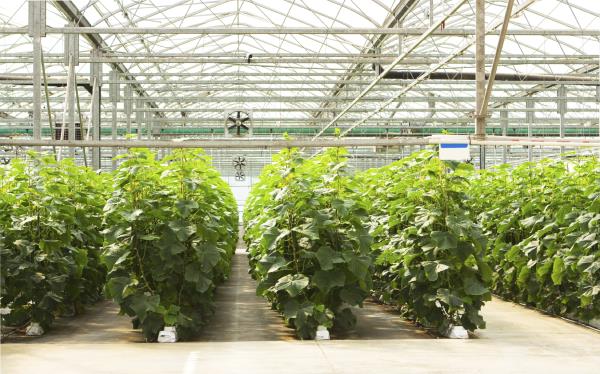The petition, which is the first organised by individual scientists in support of GM technology, yielded more than 1,400 signatures from plant science experts supporting the American Society of Plant Biologists’ (ASPB) position statement on genetically modified (GM) crops, which states that they are “an effective tool for advancing food security and reducing the negative environmental impacts of agriculture.” The ASPB is the world’s largest organisation of plant biologists.
Although there is broad support in the scientific community for genetically modified crops, the petition organisers feel that too much confusion about the issue is hindering effective deployment of these technologies.
“To meet our current and future food supply demands, without destroying our planet, we need every efficacious tool available,” they write. The letter’s authors are Carnegie’s Jose Dinneny; Noah Fahlgren, Rebecca Bart, and Daniel Chitwood of the Donald Danforth Plant Science Center in St. Louis, MO; and Luis Herrera Estrella and Rubén Rellán Álvarez of the National Laboratory of Genomics for Biodiversity in Mexico.
The signatories of the petition represent a knowledgeable consortium of scientists, who have published more than 17,600 scientific papers on subjects including plant breeding, the molecular and genetic mechanisms underlying plant growth and development, and plant responses to environmental stresses. The petitioners’ goal is to demonstrate to the public that there is consensus within their scientific community about the safety and efficacy of using genetic modification technology in agriculture.
“Our petition gives voice to the individual scientist,” Chitwood explains.
Carnegie President Matthew Scott, one of the petitioners, says: “GM crops, deployed appropriately in light of scientific knowledge and societal and environmental imperatives, can improve food and health substantially without detriment to the environment. In fact there is considerable potential for preserving the environment through use of GMOs to reduce excessive use of pesticides and fertilizers.”
The document adds voices to the already existing position statements in support of genetically modified organisms from other scientific organisations including the American Medical Association, the U.S. National Academy of Sciences, the American Association for the Advancement of Science, and the World Health Organisation.
“We hope that the consensus among plant scientists presented here is heard by policymakers, the business community, and, more importantly, the general public and initiates a new conversation on how best to implement GM tools to improve crops for sustainable agriculture. We invite advocates of the responsible use of such tools to read the ASPB position statement, sign our petition, and make your voice heard to encourage the use of the best-available scientific information in setting GMO policy and evaluating individual agricultural products,” says Dinneny.
The ASPB position statement and the petition can be found athttp://cas.nonprofitsoapbox.com/aspbsupportstatement.
